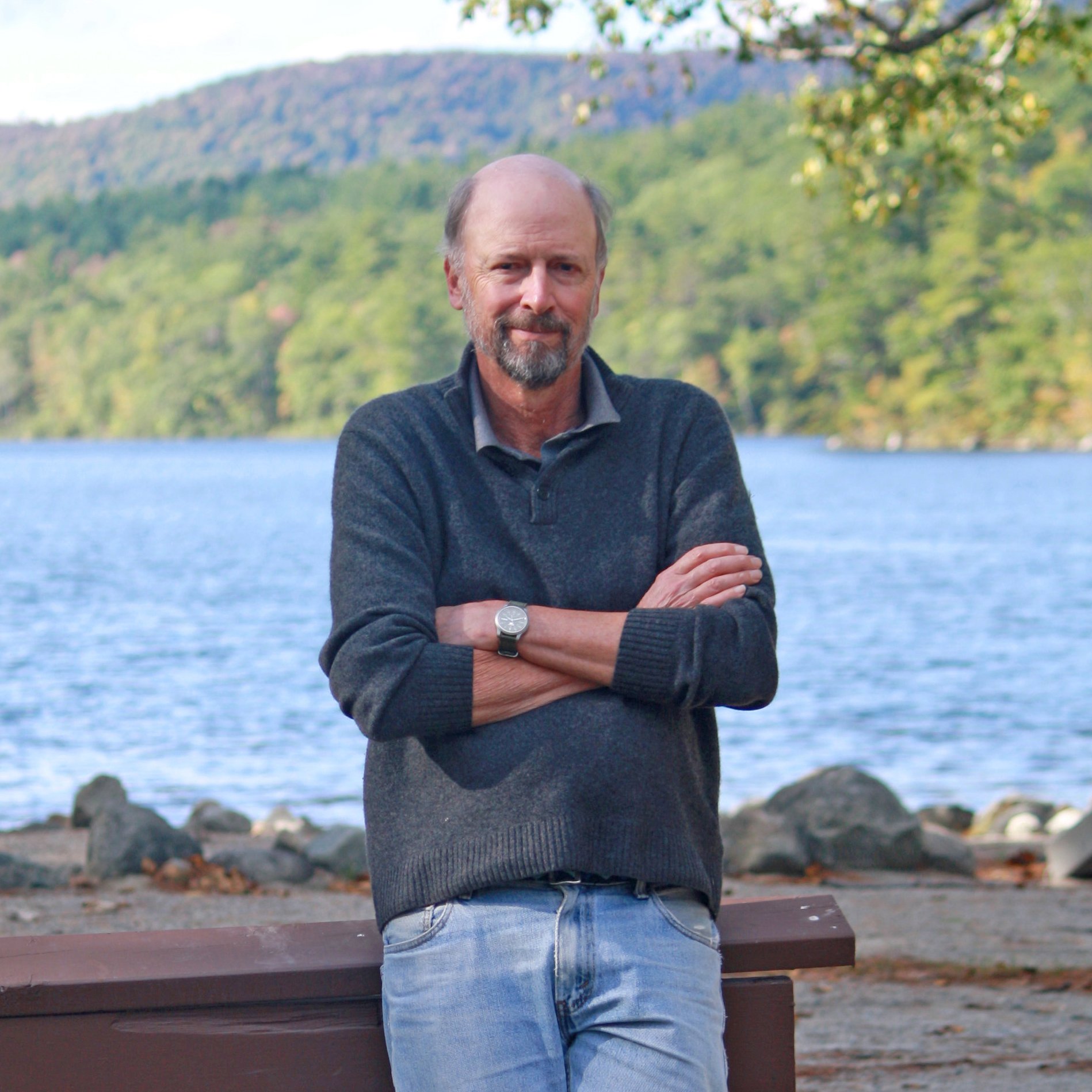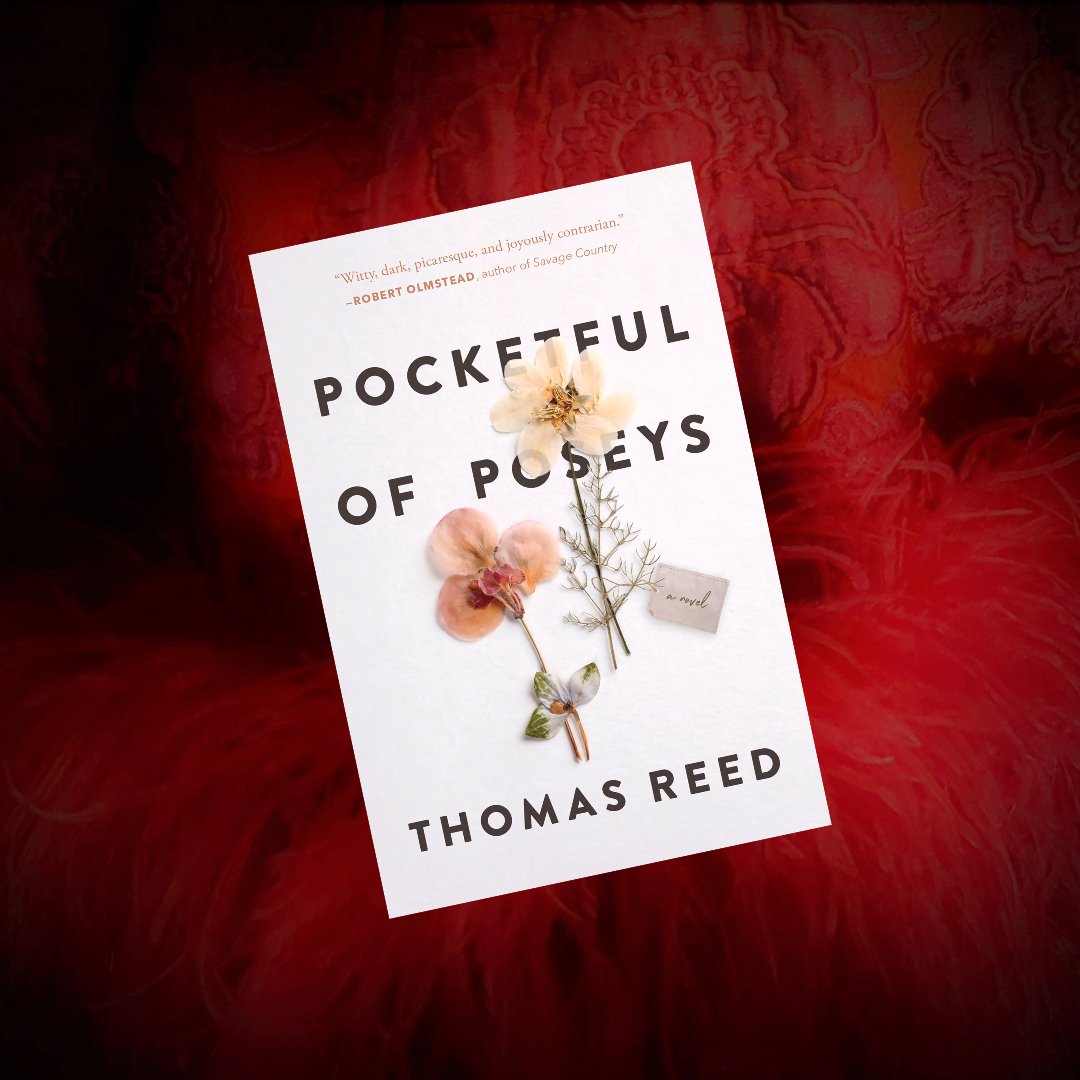Heather’s Bookshelf: Author Interview with Thomas Reed
Book Title: Pocketful of Poseys
Released: 09/19/23
Genre: Adult Literary Fiction
Interview by Heather L. Barksdale
What inspired you to write “Pocketful of Poseys”?
Reed: The matriarch of the Posey family, Cinny, is loosely based on my late mother-in-law, Claudia Grant. Like Cinny, Claudia was diagnosed with Parkinson’s disease shortly after her husband died; like Cinny, she decided after a long and heroic struggle with the degenerative condition that it was time to listen to her body and let go; and like Cinny, she arranged for her children and their families to take a trip together--“when,” she said, “this is all over.” As her daughter—my wife Dottie—is quick to point out, though, the parallels stop there. “Mom is to Cinny,” Dottie’s been heard to say with some pointedness, “as Julie Andrews is to Janice Joplin.” Unlike Cinny, Claudia was at the Delaware shore that August when Cinny hitch-hiked up to Woodstock. Maybe more to the point, Claudia never (as far as we know) co-founded a college co-op infamous for naked banquets, unlike her fictional counterpart. That said, my mother-in-law’s courage, resolve, and over-arching love for her family were clearly my greatest inspiration, and our actual trip as an extended family to Antigua expanded easily to the circum-global odyssey of the novel. The ash-sprinkling, too, is an elaboration on actual fact, but it seemed to me like the perfect vehicle for a rich and often quirky exploration of a family’s journey towards knowledge, understanding, and forgiveness.
How did you come up with the names of your main characters?
Reed: Some of the locations Cinny chooses for the ashes to go are challengingly public, St. Peter’s Piazza in Rome being a prime case in point. One of the characters suggests that the best way to get the ashes surreptitiously onto the ground is to use the ploy famous from the Steve McQueen movie, The Great Escape, where Allied prisoners digging a tunnel to escape from a German POW camp hide the tell-tale dirt in their pants pockets and then release it down their pantlegs in the camp garden. That’s not in fact what my characters end up doing, but as soon as I hit on the possibility, I knew what the family name had to be and I also had my title—with a big nod, of course, to the children’s song, “Ring Around the Rosie.” None of the other names are, I think, as interesting or significant, although Grace and Sage reflect in theirs some of the themes I hope finally make the book uplifting.
Is there anything that you want readers to know about you, your writing process or your book?
Reed: I spent more than three decades teaching literature and film at Dickinson College in Carlisle, PA. Early on, I got interested in stories that grow out of other stories—like John Gardner’s Grendel, inspired by Beowulf, or Rosenkrantz and Guildenstern Are Dead, inspired by Hamlet. I felt they were a terrific way to make the point that literary history is a kind of conversation between one generation of writers and the next, and I often asked my students to take a shot at filling out a minor character’s story as one creative assignment in what were largely analytical courses. (It was also a great way to make a broad point about the kinds of people history either pays attention to or ignores.) I decided to write my own alternative stories right along with my classes, and they were the first works of fiction I published. I’ve now moved away from “parent texts” to the freedom of “winging it” in any way my imagination suggests. After a career in literature as work, I now feel as though I have a chance to play at writing the way I played, say, in the backyard as a kid—but leaving a trail of words behind.
If "Pocketful of Poseys" was adapted into a movie, who would you like to see cast to play your lead characters?
Reed: Fun question! I can easily imagine Cissy Spacek as Cinny, Maggie and Jake Gyllenhaal as Grace and her twin brother Brian, maybe Jon Bernthal as Grace’s husband Jack, and definitely Jenna Ortega as Brian’s “nihilistic feminist socialist” stepdaughter, Sage. Brian claims, when he first meets his wife-to-be Ella, that she looks like Daryl Hannah, but Daryl’s in her sixties now. Margot Robbie? I’d definitely like to have Greta Gerwig direct; Pocketful of Poseys shares a lot of DNA with Lady Bird, Little Woman, and Barbie.
When you encounter writer’s block, what do you do to break yourself out of it?
Reed: Three decades of walking into a classroom nine times a week and having to have something reasonably intelligent to say might make me less susceptible to writer’s block than some. When the computer screen glares back at me with particular resistance, though, I generally head out for a walk. There’s nothing like fresh air and exercise and birdsong either to spark the imagination or to jostle creative logjams into gradual movement and flow. I also find that revising an earlier
section of the manuscript that involves the characters I’m working on in a new scene can get things moving.
Are there any tips that you would like to share with other aspiring authors?
Reed: Going back to something I mentioned earlier, expanding on the life or experience of minor characters in someone else’s story was hugely useful to my development as a writer. You may or may not hit on something powerful in its own right, but you’ll get some indispensable experience finding the heart of a new story and learning about the impact of characters on each other. Choose a story you love—one in which every component has a function that you feel you understand—and then colonize one little section of it. I used to feel that way about Shakespeare’s The Tempest. Imagine what Ariel and Caliban would do after Prospero and the rest leave the island.
What is your favorite genre, book, and/or author?
Reed: For a literature professor to choose favorites is risky business, but Kazuo Ishiguro’s The Remains of the Day is as good a novel as any I could name. I’d go beyond Robert Stone’s blurb on this “finely tuned portrait of an extraordinary spiritual imprisonment” to say that the book captures to a tee the way the social constraints of the British class system can become internalized as a crippling code of self-denial. By setting the blind loyalty of the butler of a great British country house against the background of the rising Third Reich, Ishiguro lends the book a political topicality that I find more chilling with ever passing year. At the same time, this poignant and (finally) tragic look at the human condition is counterbalanced by scenes that are just drop-dead funny. The end product is worthy of Shakespeare.
What are you working on next?
Reed: I have a few irons in the fire. I’m looking for an illustrator for my translation of the Middle English Arthurian romance, Sir Gawain and the Green Knight, which I think would make a great YA offering. I published a kind of “mountaineering ghost story” a while back that I’m thinking of expanding into a short novel. And I’m also toying with an idea about an older man whose bucket list includes a trip on one of the world’s “long walks.” He’d be joined on sections of the route by various people from his past, some welcome fellow travelers, some potentially more challenging to be with. I share some of my wife’s concerns, though, that the slope towards the autobiographical might be a slippery one. We’ll have to see.
Learn More About the Author and Pockeful of Poseys:
https://www.instagram.com/beaufortbooks/
https://twitter.com/BeaufortBooks
Interested in checking out the book for yourself?
Find it for purchase here
Interested in submitting your book for review? Visit my review page for guidelines and submission requirements.
review


